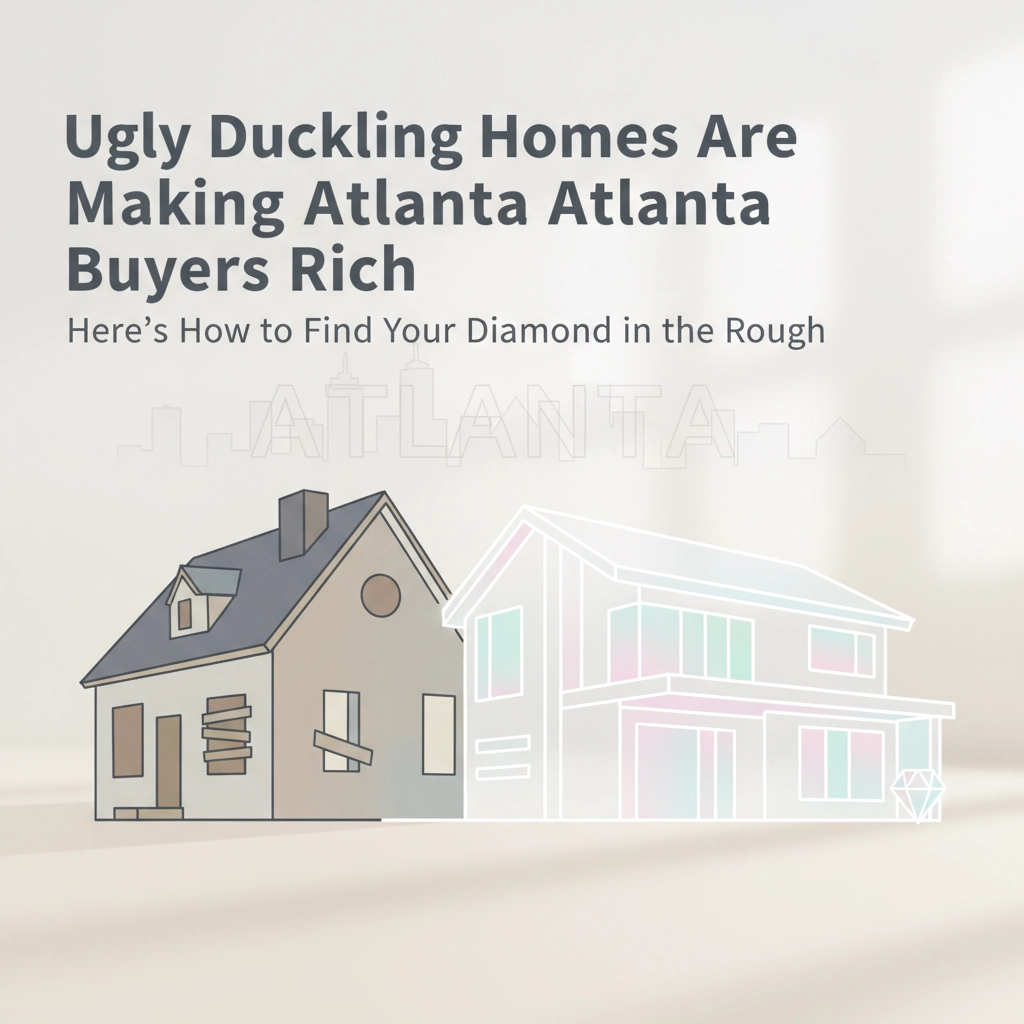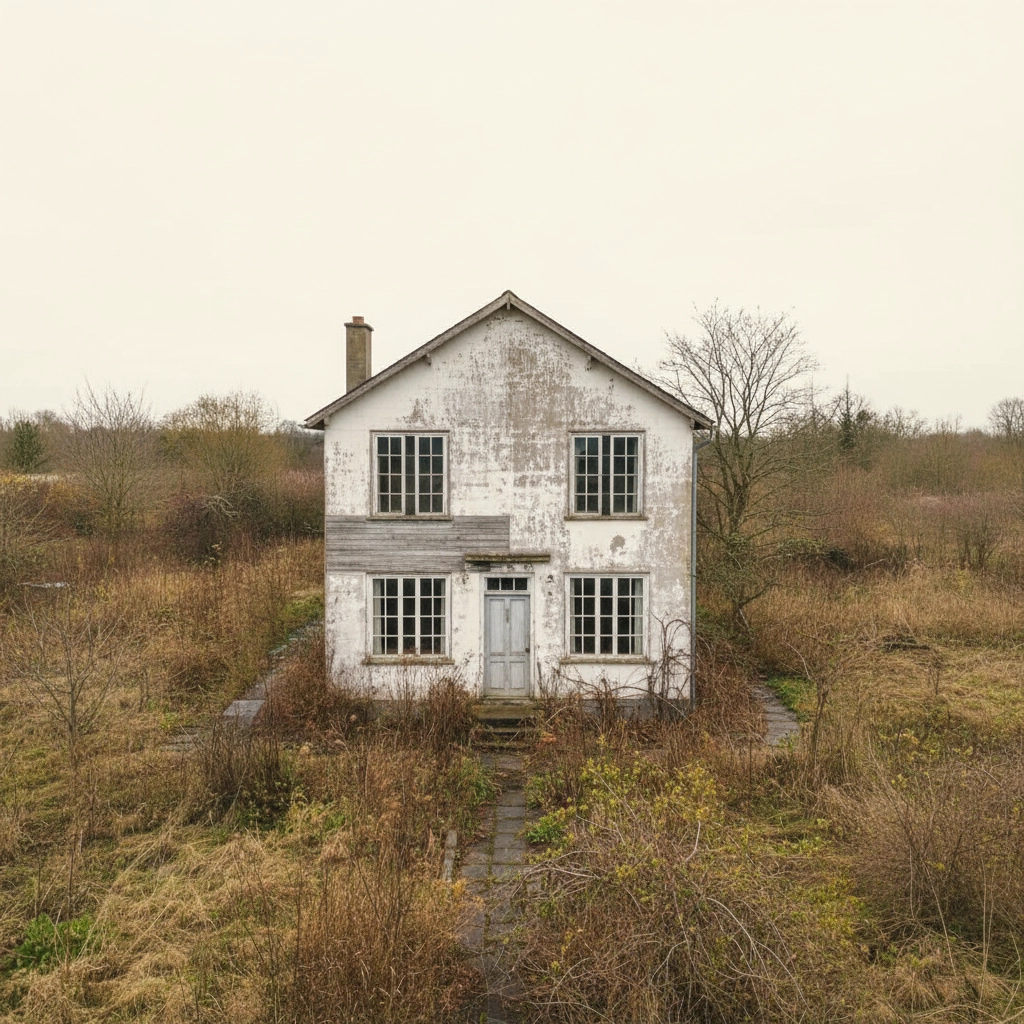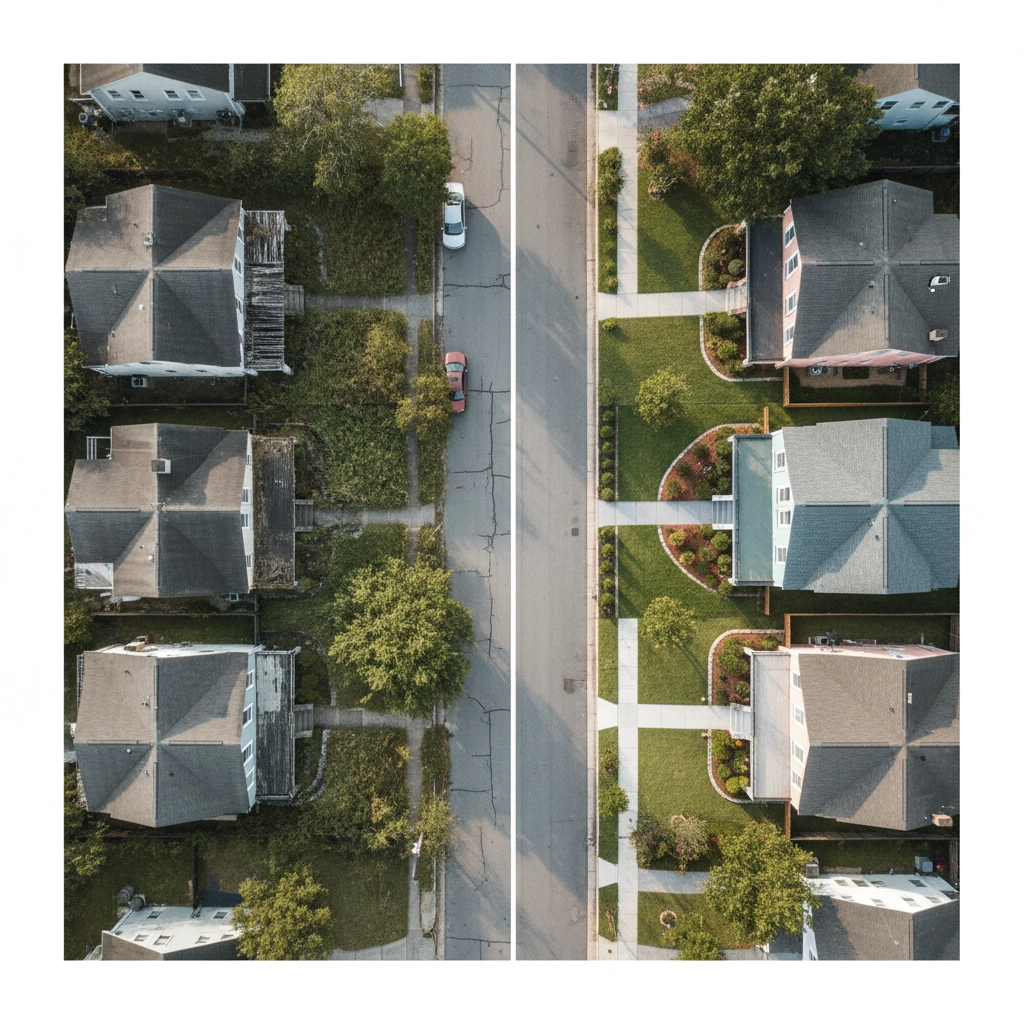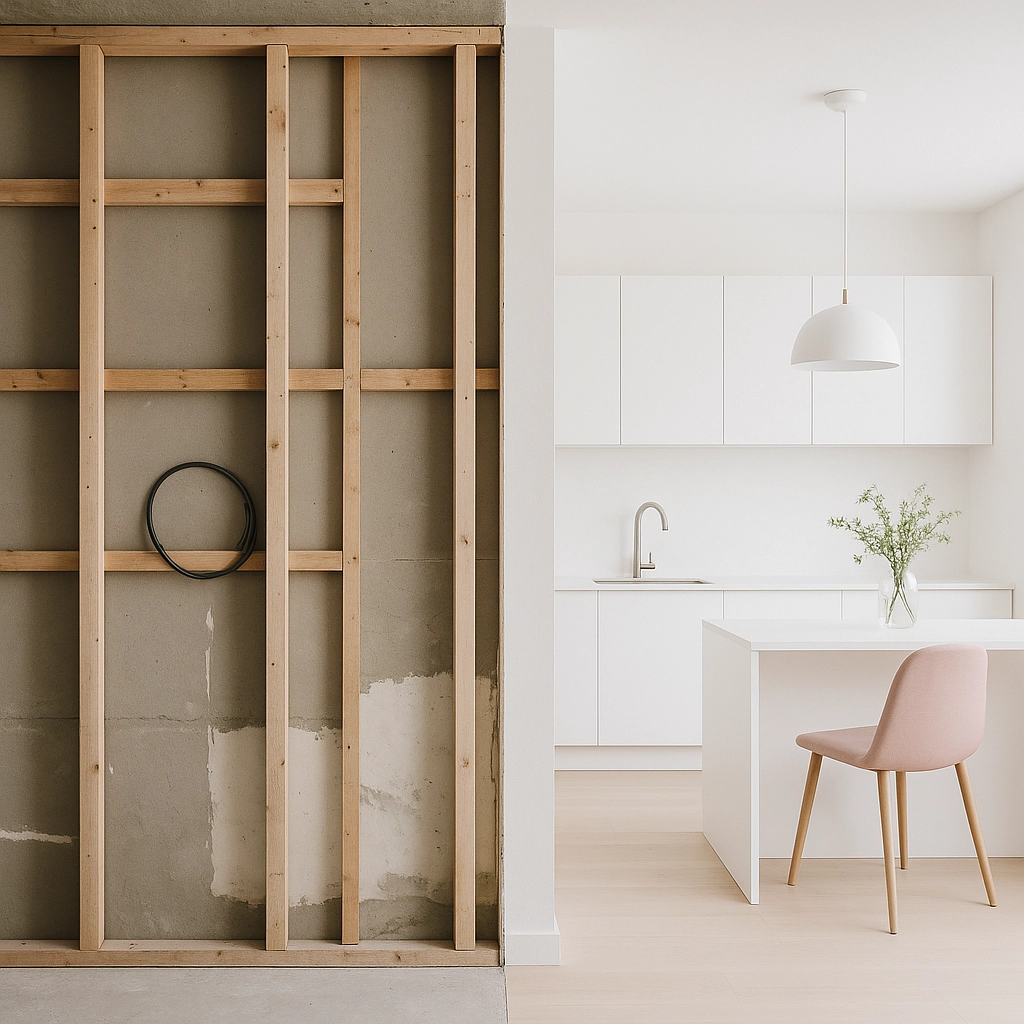Ugly Duckling Homes Are Making Atlanta Buyers Rich: Here's How to Find Your Diamond in the Rough

You know those houses that make you think "yikes" when you drive by? The ones with overgrown yards, dated exteriors, and that general "needs lots of love" vibe? Well, those "ugly duckling" homes might just be your ticket to serious wealth in Atlanta's real estate market.
While most buyers are chasing the pretty, move-in-ready homes (and competing with dozens of other offers), smart investors are quietly scooping up the properties everyone else overlooks. And they're making bank doing it.
Why Atlanta's Ugly Ducklings Are Gold Mines
Atlanta's real estate market is perfect for the ugly duckling strategy, and here's why: this city is constantly evolving. Neighborhoods that seemed sketchy five years ago are now the hottest spots in town. Take East Atlanta, for example – it went from being written off as undesirable to becoming one of the city's most vibrant and sought-after areas.

The magic happens because ugly duckling homes create a gap that savvy investors can exploit. When a property looks rough around the edges, most people can't see past the surface issues. They see peeling paint and think "disaster." You see peeling paint and think "discount."
Here's the real kicker: the biggest profits in real estate come from properties that scare away the competition. While everyone else is bidding up the pretty houses, you're getting the diamonds in the rough at way below market value.
What Makes a House an "Ugly Duckling" Worth Buying
Not every ugly house is a good investment – some are genuinely money pits that'll drain your bank account. The trick is knowing how to spot the difference between a diamond in the rough and a genuine disaster.
Good Ugly Duckling Signs:
- Solid foundation and structure
- Cosmetic issues that look worse than they are (paint, landscaping, outdated fixtures)
- Great location or up-and-coming neighborhood
- Properties that have been on the market for a while
- Homes with "weird" layouts that can be easily fixed
Red Flag Ugly Duckling Signs:
- Major structural problems
- Extensive water damage or mold
- Properties in declining neighborhoods with no turnaround signs
- Homes that need permits for major work in areas with strict regulations
- Foundation issues or major electrical/plumbing problems
The Atlanta Advantage: Timing and Transformation
Atlanta's growth story is far from over. With major events like the FIFA World Cup coming to the area in 2026, property values in strategic neighborhoods are poised for significant appreciation. The key is getting in before everyone else catches on.

Local real estate investor Charles Curry recently documented a successful transformation project in Conyers, Georgia, showing exactly how to turn a property he'd owned as a rental for over 20 years into a profitable flip. His project, which was 75% complete when showcased at an Atlanta REIA tour, demonstrates the systematic approach needed to maximize equity through smart renovation decisions.
The secret sauce isn't just buying cheap – it's buying strategically in areas where Atlanta's continued growth and development will drive demand.
How to Find These Hidden Gems
1. Drive the Neighborhoods Some of the best ugly duckling opportunities never make it to the MLS. Drive through transitional neighborhoods, especially areas near:
- New business developments
- Public transportation routes
- Universities and hospitals
- Established trendy neighborhoods
2. Network with Local Investors Join groups like Atlanta REIA (Real Estate Investor Association) where experienced investors share insights about market trends and upcoming opportunities. These groups regularly host property tours and educational sessions where you can see transformation projects in action.
3. Work with Agents Who "Get It" Not all real estate agents understand the ugly duckling strategy. You need someone who can look past surface issues and help you identify properties with real potential. Contact our team – we specialize in helping investors find these diamond-in-the-rough opportunities.
4. Check Out Expired Listings Properties that didn't sell often make great ugly duckling candidates. The previous marketing might have focused on the negatives, but you can see the potential that others missed.
The Transformation Game Plan
Once you've found your ugly duckling, the transformation process is where the real money is made or lost. Here's how to approach it strategically:

Phase 1: Numbers First Before you get excited about the potential, run the numbers cold. Calculate:
- Purchase price + renovation costs + holding costs
- Expected after-repair value (ARV)
- Your target profit margin (aim for at least 20-30% return)
Phase 2: Strategic Renovations Focus on improvements that give you the biggest bang for your buck:
- Kitchens and bathrooms (these sell houses)
- Fresh paint and updated fixtures
- Curb appeal improvements
- Functional improvements that add square footage or bedrooms
Phase 3: Professional Project Management This isn't a DIY weekend project. Successful ugly duckling transformations require:
- Reliable contractors who understand your timeline and budget
- Proper permits and inspections
- Quality materials that won't need replacement in two years
- Staging that helps buyers see the home's potential
Real Success Stories: Atlanta's Transformation Tales
Sarah Fogle's recent Atlanta project perfectly illustrates the ugly duckling principle in action. Her transformation took a property that most buyers would've walked away from and turned it into a stunning home that commanded top dollar in her neighborhood.
The key to her success? She didn't just fix problems – she enhanced the home's natural strengths while addressing the obvious weaknesses. This approach maximizes the gap between your investment and the final value.
Your Action Plan: Getting Started
Ready to find your own ugly duckling? Here's your step-by-step approach:
Week 1-2: Education and Setup
- Research Atlanta neighborhoods showing signs of growth
- Connect with local investor groups
- Set up your financing (you'll need to move fast on good deals)
Week 3-4: Active Hunting
- Start driving target neighborhoods
- Build relationships with agents who work in these areas
- Analyze at least 10 properties to train your eye
Week 5+: Making Offers
- When you find the right property, move quickly
- Factor in all costs before making an offer
- Don't get emotional – stick to your numbers

The Bottom Line
Atlanta's ugly duckling homes are creating wealth for investors who can see past surface-level problems to identify real opportunity. While others are fighting over the pretty houses, you can build wealth by transforming the properties everyone else overlooks.
The key is approaching this strategically – with proper education, good numbers analysis, and a clear transformation plan. It's not about buying the cheapest house you can find; it's about buying the house with the biggest gap between current condition and future potential.
Remember, every beautiful home started as someone's vision. The question is: will you be the one with the vision to turn Atlanta's ugly ducklings into your wealth-building swans?
Ready to start your ugly duckling journey? Let's talk about finding the perfect diamond in the rough for your investment goals.
It all begins with an idea. Maybe you want to launch a business. Maybe you want to turn a hobby into something more. Or maybe you have a creative project to share with the world. Whatever it is, the way you tell your story online can make all the difference.
Don’t worry about sounding professional. Sound like you. There are over 1.5 billion websites out there, but your story is what’s going to separate this one from the rest. If you read the words back and don’t hear your own voice in your head, that’s a good sign you still have more work to do.
Be clear, be confident and don’t overthink it. The beauty of your story is that it’s going to continue to evolve and your site can evolve with it. Your goal should be to make it feel right for right now. Later will take care of itself. It always does.

